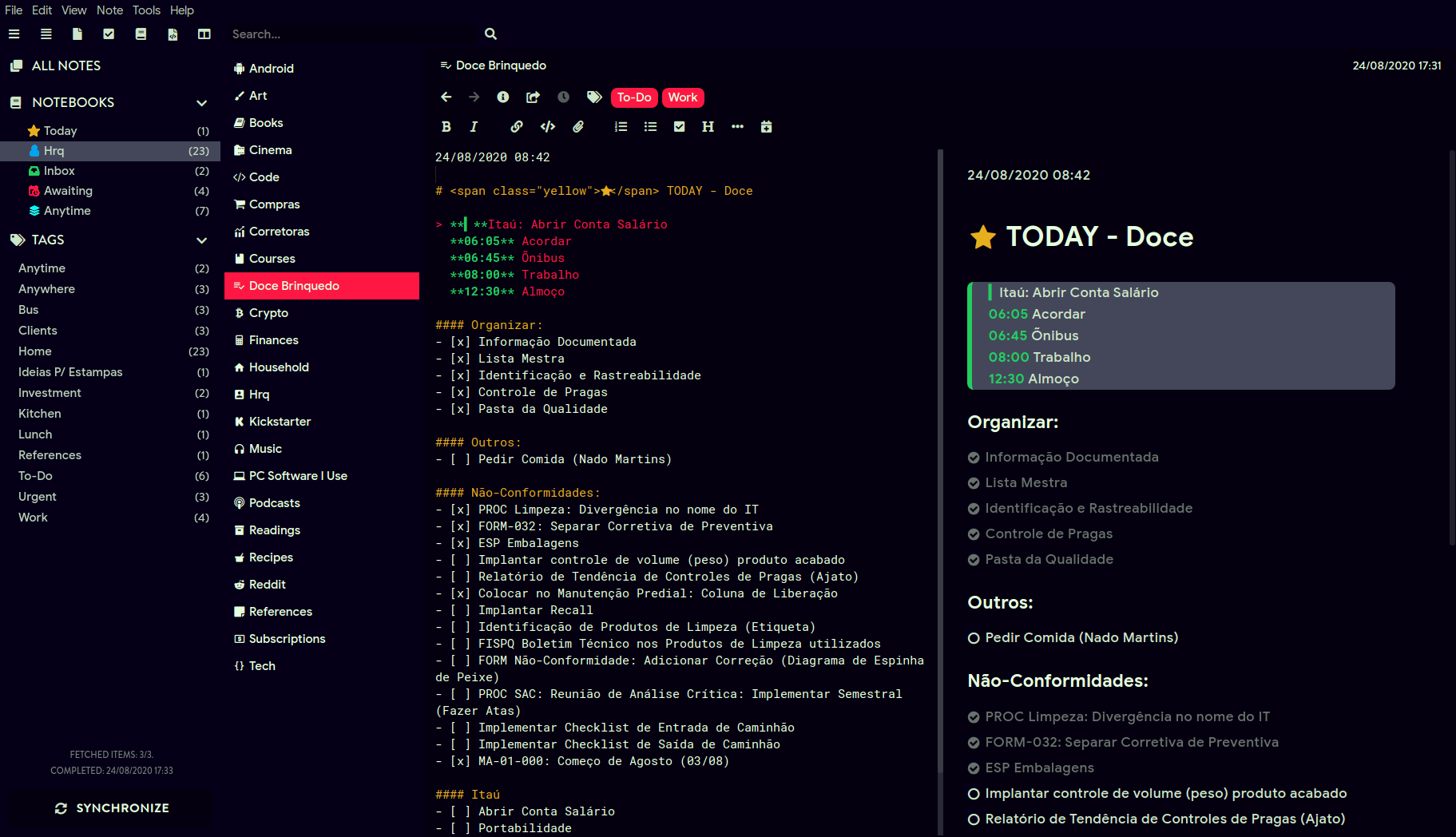Philippine Colleges with Artificial Intelligence (AI) Courses
I Compiled Philippine Colleges with Artificial Intelligence (AI) Courses So You Don't Have To

The Evolving Landscape of AI Education in the Philippines
Artificial intelligence (AI) is rapidly transforming global industries and redefining professional roles, extending its influence far beyond the traditional confines of information technology and data science. Its pervasive impact is now felt across diverse sectors, including healthcare, finance, business, and marketing, creating an urgent demand for a skilled workforce capable of navigating and innovating within this AI-driven world.1 In response to this global shift, the Philippines is strategically positioning itself as a key player in the AI landscape, with an ambitious goal to become the ASEAN hub for artificial intelligence.2 This national aspiration underscores the critical need for robust and forward-thinking AI education programs within the country’s higher education institutions.
The academic response to this technological imperative in the Philippines is not merely a reactive measure but reflects a concerted national strategy to cultivate AI talent and capability. Universities are not solely focused on imparting technical skills; there is a pronounced emphasis on developing individuals who can contribute to ethical innovation and responsible AI development. This approach is evident in the explicit articulation of principles for responsible AI, which address considerations such as the common good, empowerment, cultural sensitivity, privacy, accountability, transparency, and fairness.3 Furthermore, initiatives focused on leveraging AI for sustainable community development and nation-building highlight a comprehensive vision that extends beyond purely technical training to a more mature, values-driven educational framework. This integrated perspective is crucial for ensuring that AI development contributes positively to national progress and aligns with societal values.
Leading Philippine Institutions with AI Programs
This section provides a detailed examination of AI-related programs offered by prominent Philippine universities, highlighting their unique strengths and curriculum focus.
Mapúa University: Pioneering AI Engineering and Integrated Learning
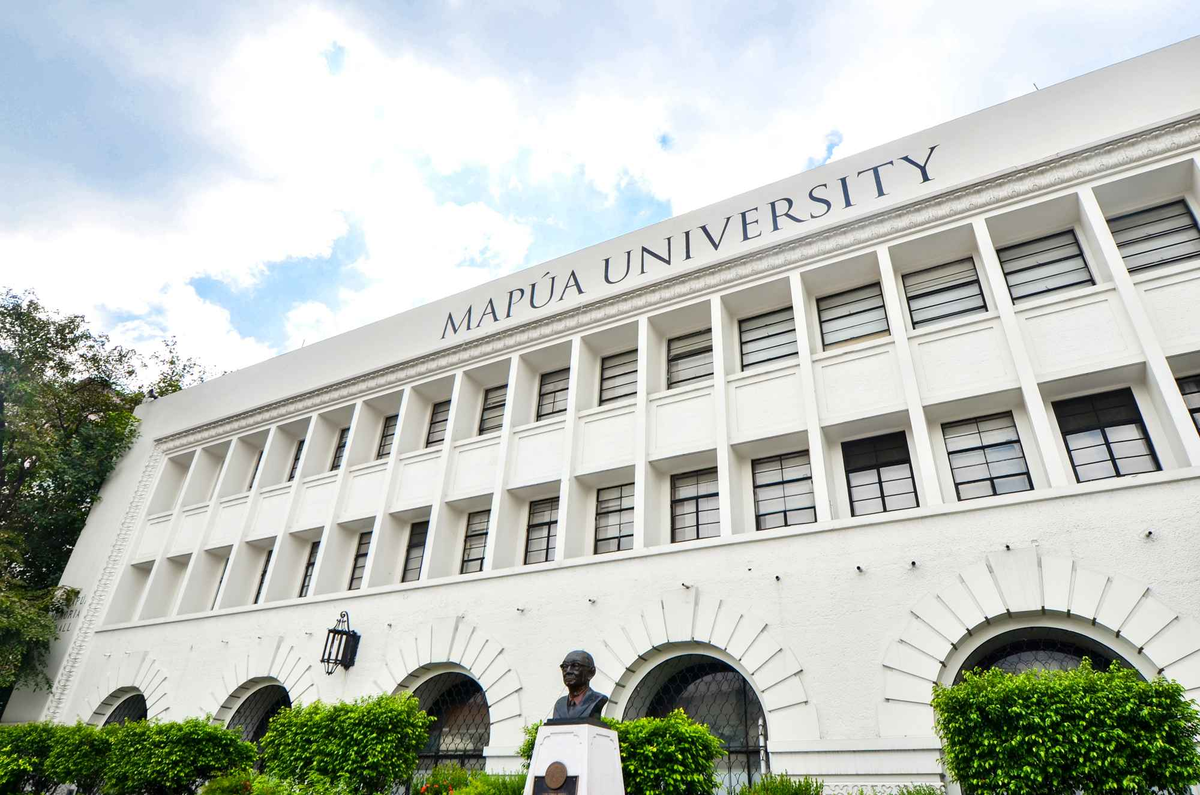
Mapúa University has distinguished itself as a leader in AI education by being the first institution in the Philippines to introduce a Bachelor of Science in AI Engineering.2 This innovative program is designed to equip students with the necessary skills to drive AI innovation and technological advancements. The curriculum of the BS in AI Engineering program is comprehensive, covering core areas such as machine learning, robotics, natural language processing, and data analytics.2 It adopts a multidisciplinary approach, drawing expertise from computer science, engineering, and cognitive science to prepare students for the intricate task of designing and deploying intelligent systems.2 Mapúa’s commitment to AI education is further demonstrated by its early integration of foundational AI-centered courses, including “Introduction to AI” and “Introduction to Data Science,” into its programs since 2018, particularly within the School of Information Technology.1
Mapúa’s proactive stance in AI education is also reflected in its active collaborations with prominent AI-driven companies and innovators. Notably, the university has partnered with Arizona State University and OpenAI to integrate tools like ChatGPT into its higher education framework, setting a significant precedent for AI learning within the country.1 Recognizing the need for flexible learning pathways, Mapúa also offers fully online programs, including the BS in AI Engineering, through its “Ubiquitous Online Experience (ÚOx),” which provides self-learning materials and comprehensive student support.5 While the exact duration for the BS in AI Engineering program is not explicitly stated in the available information 2, other undergraduate engineering programs at Mapúa, such as Industrial Engineering (3.5 years) and Electronics/Electrical Engineering (3 years), offer insights into typical program lengths for full-time online study.6 Prospective students are advised to directly verify the specific duration for the BS in AI Engineering with the university. Graduates of Mapúa’s AI programs are prepared for a diverse range of roles, including AI Engineer, Machine Learning Engineer, Business Intelligence Developer, Research Scientist, Big Data Engineer/Architect, Database Developer, Software Engineer, and Quantitative Analyst.2
Mapúa’s strategy extends beyond merely launching a new degree; it aims for a deep, systemic integration of AI across its educational ecosystem. By pioneering a dedicated AI engineering program, embedding AI courses across curricula, and actively upskilling its faculty, Mapúa is not just reacting to the increasing demand for AI professionals but is actively shaping the future of AI talent in the Philippines. The availability of fully online programs further demonstrates an adaptive and accessible approach to education, aligning with modern learning trends and potentially broadening the reach of its specialized AI offerings.
University of the Philippines Diliman (UP Diliman): Advanced AI Studies and Research Hub
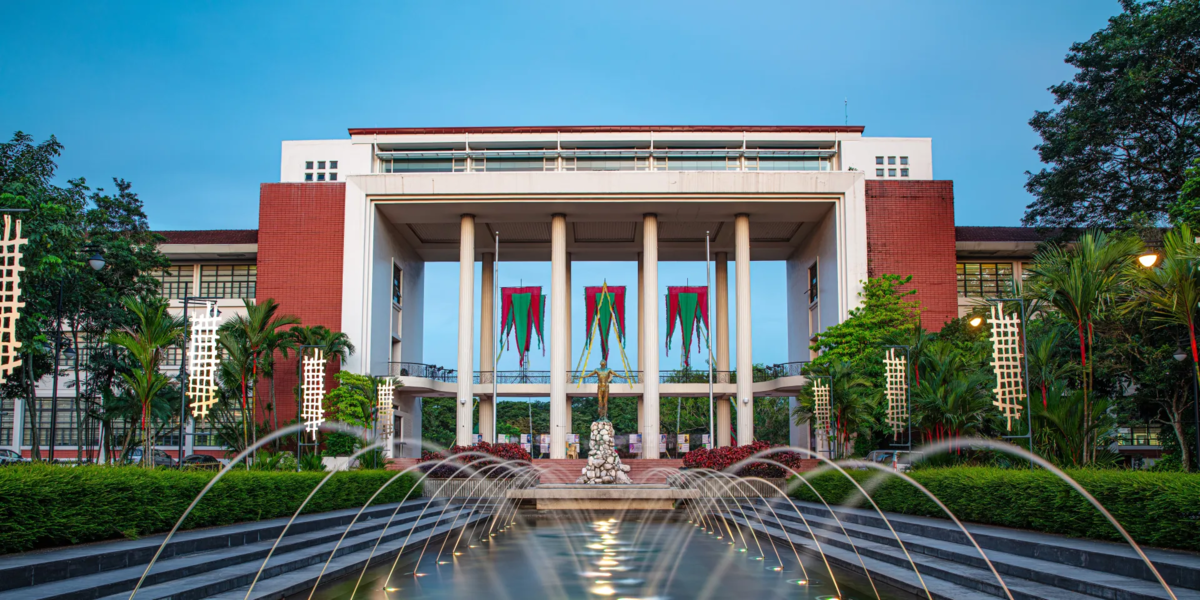
As the flagship campus of the University of the Philippines System, UP Diliman offers advanced AI programs that underscore its commitment to academic excellence and research. These include a Master of Engineering in Artificial Intelligence (MEng AI) and a Doctor of Philosophy in Artificial Intelligence (PhD AI).9
The MEng AI program is a 2-year full-time or 3-year part-time professional master’s degree offered under the College of Engineering. It requires the completion of 31 units, culminating in an applied capstone project.9 This multidisciplinary program focuses on the development and deployment of intelligent engineered systems capable of performing tasks that typically require human intelligence.9 The PhD AI program, available as a 3 or 4-year full-time or 6 to 10-year part-time option, emphasizes state-of-the-art dissertation research and requires publications for graduation. Its core focus is on problem identification and understanding, familiarity with cutting-edge solutions, the formulation of novel algorithms and techniques, and the deployment of advanced, reliable AI systems.10 Specific PhD courses include Computational Learning Theory, Machine Learning for Sequential Data, Reinforcement Learning, Differential Digital Signal Processing, Machine Learning in Natural Language Processing, Autonomous Robots, Artificial Intelligence Accelerator, and Probabilistic Graphical Models.11
At the undergraduate level, the Bachelor of Science in Computer Science (B.Sc. C.S.) curriculum at UP Diliman includes “CS 180 (Artificial Intelligence)” as a required 3-unit course in the third year, second semester.13 This course, often integrated with “Computer Simulation and Modeling,” incorporates the use of statistical tools, techniques, knowledge in expert systems, and artificial intelligence for data representation.14 While the BSCS degree itself does not feature explicit specializations on the diploma, students can achieve a de-facto specialization through year-long projects undertaken within the department’s research laboratories and through their elective choices.13 Beyond the main campus, the University of the Philippines Open University (UPOU) contributes to AI education by offering “CMSC 210: Introduction to Artificial Intelligence,” which covers foundational knowledge, machine learning principles, neural networks, various AI approaches, and applications such as natural language processing and computer vision.15 UPOU has also proactively issued official guidelines for AI use in teaching and learning, emphasizing responsible and ethical integration of the technology.16
UP Diliman’s Department of Computer Science is home to several research groups with significant AI-related interests. These include the Computer Vision and Machine Intelligence Group (CVMIG), which applies computational intelligence principles to biological, physical, and social systems (e.g., machines understanding the deaf, medical diagnosis, and robot interactions); the Scientific Computing Laboratory (SCL), which includes a dedicated Data Analytics Group; and the Service Science and Software Engineering Laboratory (S3), which incorporates studies related to artificial intelligence.17
The university’s approach to AI education is deeply rooted in academic rigor and research excellence. The emphasis on developing “intelligent engineered systems” and extending the “AI body of knowledge” suggests a focus on fundamental advancements and high-level application. The integration of AI into the undergraduate CS curriculum, even without a formal specialization on the diploma, ensures a strong theoretical foundation. Furthermore, the UP System’s proactive development of “Principles for Responsible Artificial Intelligence” demonstrates a national leadership role in guiding ethical AI development and deployment, reflecting a comprehensive vision that extends beyond technical training to broader societal impact and governance.
De La Salle University (DLSU): AI Integration within Computer Science Tracks

DLSU-Dasmariñas (DLSU-D) offers a Bachelor of Science in Computer Science with a Specialization in Intelligent Systems.23 This specialization is designed to train students in abstract reasoning, analytical thinking, and research, with a specific focus on solving problems in Artificial Intelligence.23 The curriculum emphasizes synthesizing goal-oriented processes such as problem-solving, decision-making, environmental adaptation, learning, and communication through the application of computers and algorithms.23 Key AI-related courses within this track include “Introduction to Statistical Machine Learning,” “Introduction to Parallel Computing,” “Advanced Topics in Artificial Intelligence,” “Computer Vision/Image Processing,” “Advanced Topics In Algorithms,” and “Special Topics in Artificial Intelligence”.23 Graduates from this program are prepared for careers as AI Programmers, Machine Learning Engineers, Computer Vision and Image Data Analysts, Software Engineers, and Systems Administrators.23
De La Salle University Manila (DLSU-M) provides AI-related coursework primarily through its Bachelor of Science in Computer Science Major in Software Technology (BSCS-ST) program.24 The BSCS-ST curriculum covers fundamental computing theories and principles, incorporating advanced topics in intelligent systems.24 A core component of this program is “CSINTSY: Introduction to Artificial Intelligence”.24 Furthermore, professional electives within the Software Technology specialization offer advanced topics such as “Natural Language Processing,” “Advanced Machine Learning,” “Data Analytics,” and “Complex Systems”.24 It is important to note a discrepancy in the stated program duration for DLSU-M’s BSCS programs: some sources indicate a 3-year duration 27, while the total academic units required for the BSCS-ST program (173 units) 24 typically align with a 4-year program under a standard semester system. Prospective students are strongly advised to directly verify the accurate program length with the university.
The approach taken by both DLSU-D and DLSU-M suggests that AI is viewed as an advanced and specialized area within the broader field of Computer Science. This strategy ensures that graduates possess not only AI-specific skills but also a comprehensive understanding of core computing principles, making them versatile professionals. The practical, application-oriented nature of the AI-related courses, covering areas like Machine Learning, Computer Vision, and Natural Language Processing, prepares students for real-world challenges. The noted contradiction in program duration for DLSU-M’s BSCS programs highlights a critical ambiguity for prospective students, emphasizing the necessity of cross-referencing information and seeking official program handbooks for precise details.
Ateneo de Manila University: AI in Data Science and Research-Driven Applications
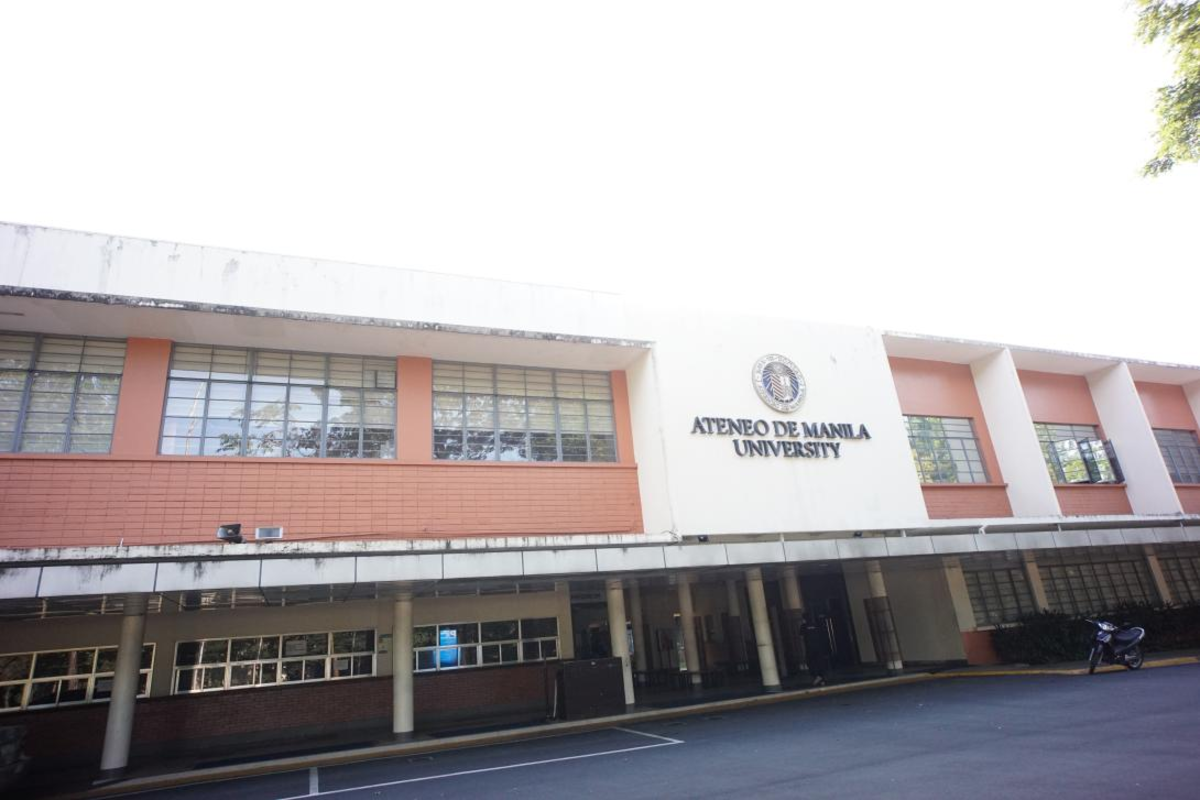
Ateneo de Manila University integrates AI concepts primarily through its Minor/Specialization in Data Science and Analytics.29 While not a standalone AI degree, this program includes “CSCI 111: Introduction To Artificial Intelligence” as an elective, indicating its relevance within the data science curriculum.29 Beyond this, the Bachelor of Science in Computer Engineering program at Ateneo explicitly prepares its graduates for careers as “Artificial intelligence and machine learning developers” and “Machine learning specialists”.30 This suggests that AI and machine learning competencies are considered significant outcomes of their engineering curriculum, equipping students with practical skills for these burgeoning fields.
Ateneo is particularly strong in AI research, boasting several specialized laboratories within its Department of Information Systems and Computer Science that are actively engaged in various facets of AI. The Ateneo Computational Sound and Music Lab applies machine learning, computational methods, and algorithmic methodologies to the domain of sound and music, leading to advancements in AI.31 The Ateneo Computer Algorithms and Applications Lab focuses on developing algorithms for optimization problems and applying computing principles in areas such as Machine Learning, Artificial Intelligence, Computer Vision, and Big Data.31 The Ateneo Laboratory for Intelligent Visual Environments (ALIVE) is dedicated to improving object detection and classification through image processing and machine learning, with practical applications in biomedical systems, traffic monitoring, and surveillance.31 The Ateneo Social Computing Science Lab studies human and group behaviors through natural language analysis and movements, conducting research in social media analytics and agent-based simulations.31 Furthermore, the Ateneo Virtual, Augmented, and Mixed Reality Laboratory (VAMR) develops AR/VR applications for education, entertainment, and training, enhancing AR technology through interactive game scripting and hand gesture detection.31 Faculty members, such as Maria Mercedes T. Rodrigo, PhD, demonstrate specific research interests in artificial intelligence in education, learning analytics, and educational games.31
Ateneo’s approach to AI, primarily through a data science minor/specialization and robust research laboratories, indicates that AI is viewed as a powerful tool applicable across various domains rather than solely a standalone discipline. The diverse applications of AI in their research—spanning sound, vision, social computing, and extended reality—highlight this interdisciplinary focus. The inclusion of AI/ML as direct career paths for Computer Engineering graduates further reinforces the practical integration of AI competencies. The university’s strategy is to cultivate AI expertise through a strong emphasis on applied research and interdisciplinary collaboration, producing graduates who can apply AI principles creatively and ethically across various sectors, demonstrating a commitment to innovation that extends beyond core computer science to broader societal impact.
FEU Institute of Technology (FEU Tech): Industry-Focused AI Specialization
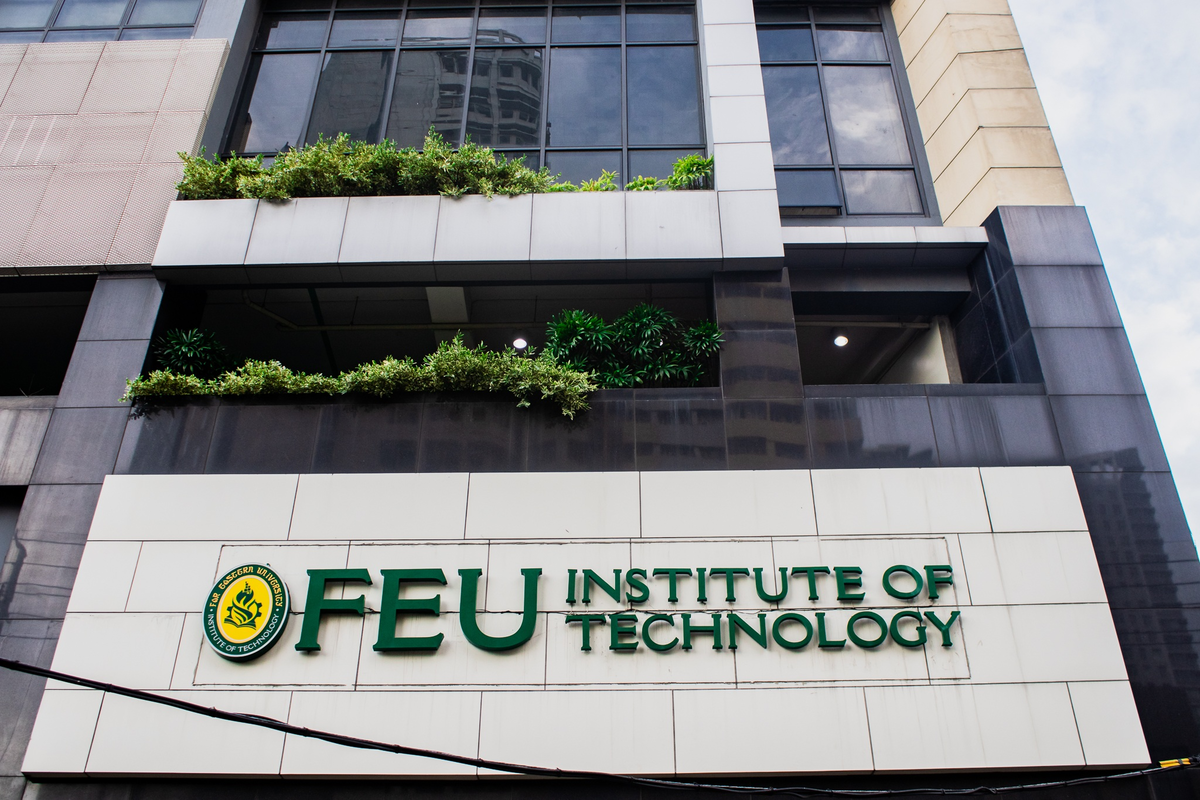
FEU Institute of Technology (FEU Tech) offers a Bachelor of Science in Computer Science with a specialization in Artificial Intelligence.33 This specialization is specifically designed to provide students with essential competencies for innovation within the AI field. The curriculum covers a wide array of topics, including problem-solving, reasoning, understanding natural language, speech recognition, and computer vision.33 The program’s design emphasizes equipping students with the skills and expertise necessary to deploy AI algorithmic solutions that adhere to prevailing industry standards and best practices.33 Graduates are expected to demonstrate capabilities in managing efficiency and automation, personalization, data analysis and insights, and creating predictive and prescriptive solutions.33
While the exact program duration for the BSCS with AI specialization is not explicitly stated in the provided information 33, general information about FEU’s College of Engineering mentions a “trimestral (four years and one term) program”.36 Additionally, some BS IT curricula are outlined as 3 years.37 Prospective students should directly confirm the specific duration for the AI specialization. The program prepares graduates for a wide array of AI-related careers, reflecting the growing demand in the industry. These roles include Machine Learning Engineer, Data Scientist, AI Research Scientist, Robotics Engineer, Natural Language Processing (NLP) Engineer, Computer Vision Engineer, AI Ethics and Bias Specialist, AI Product Manager, AI Consultant, AI Software Developer, AI in Healthcare Specialist, and Cybersecurity Analyst specializing in AI.33 Beyond academic offerings, FEU Diliman also engages in an “AI in Action” program, which aims to leverage AI for sustainable community development in the Philippines, addressing critical challenges in governance, economic growth, and environmental sustainability.38
FEU Tech’s AI program is clearly geared towards producing industry-ready professionals. The curriculum’s focus on practical deployment and adherence to industry standards, coupled with a wide range of career paths, makes it highly attractive for students seeking immediate employment in the burgeoning AI sector. The inclusion of roles like “AI Ethics and Bias Specialist” demonstrates an awareness of the broader societal implications of AI development. The “AI in Action” program further highlights a commitment to applying AI for tangible societal benefit, suggesting a program that balances technical proficiency with a sense of social responsibility. The ambiguity in program duration, however, remains a point of concern for prospective students, necessitating direct inquiry for clarity.
Adamson University: AI Integration and International Dual Degree
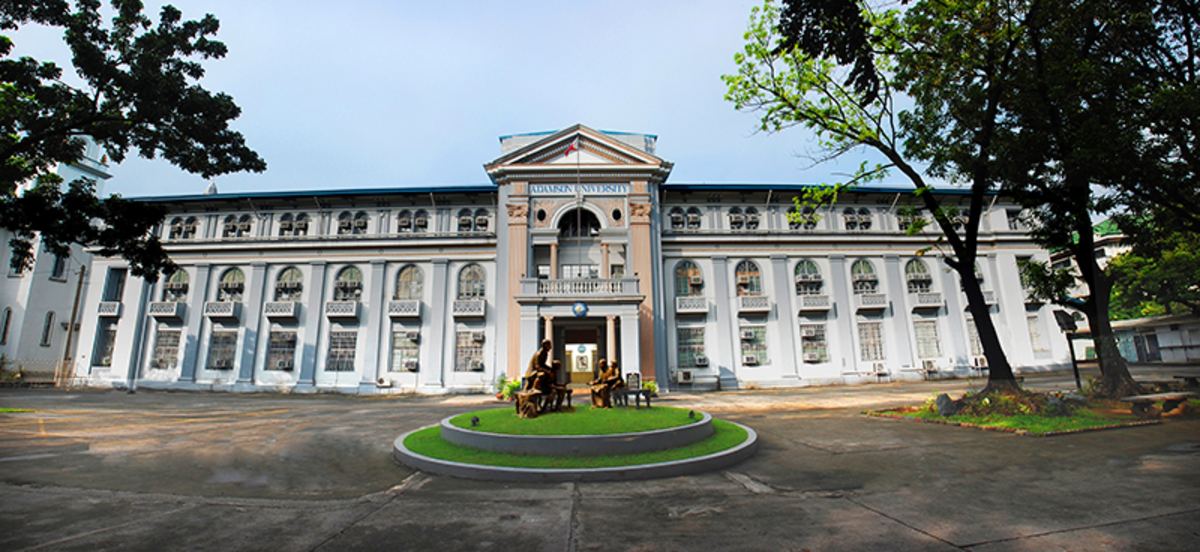
Adamson University offers a Bachelor of Science in Computer Science and Information Engineering, a dual degree program established in collaboration with Minghsin University of Science and Technology (MUST) in Taiwan.39 This interdisciplinary dual degree program incorporates Artificial Intelligence, Machine Learning, and Natural Language Processing as key sub-areas within its software systems component.39 The program is designed to provide students with in-depth knowledge and skills from both computer science and information engineering, thereby preparing them for global competence in the technology sector.39
Within Adamson’s standalone BS Computer Science curriculum (Curriculum Year 2022), “CS425A: Artificial Intelligence” is listed as a required 3-unit course in the Third Year, 1st Semester.41 Additionally, “CS461: Machine Learning LEC” and “CS461L: Machine Learning LAB” are offered as electives under “REQUIRED SPECIALIZATION COURSE 3”.41 A notable development in Adamson University’s commitment to AI education is the College of Computer and Information Technology’s (CCIT) achievement of being the first academic institution in the Philippines to complete the Google AI Essentials Program for all its faculty and staff.43 This initiative, a strategic partnership with the IT and Business Process Association of the Philippines (IBPAP) and Google, focused on foundational AI concepts, responsible use of generative tools, and effective prompting techniques.43 The explicit goal of this faculty development is to integrate these lessons and resources directly into the curriculum, thereby enhancing student learning and preparing them for real-world opportunities.43
Adamson University is implementing a strategic, foundational approach to AI education by first ensuring its educators are proficient in the latest AI concepts. This commitment to comprehensive faculty development suggests a robust and continuously updated AI curriculum, as the knowledge gained by faculty will directly translate into enhanced teaching and learning experiences for students. This proactive measure positions Adamson to offer highly relevant and current AI education, potentially leading to a more dynamic and adaptable learning environment for students in AI and related fields.
University of Santo Tomas (UST): Dedicated AI Bachelor’s and Interdisciplinary Research

Beyond the specialized AI degree, UST’s Bachelor of Science in Computer Science program also integrates AI concepts through its “Data Science” track, which focuses on equipping students with mathematical analysis and programming skills for data-driven solutions.45 The “Core Computer Science” track may also include special topics in “natural languages” and “cognitive and scientific computing”.45 Notably, the BSCS curriculum includes “CS 2618: Introduction to Intelligent Systems”.46
UST is actively involved in AI research, with several notable initiatives. The “iSULAT” project, an AI-driven pen developed in collaboration between the Faculty of Engineering and the College of Rehabilitation Sciences, aims for early detection of neurodevelopmental conditions like ADHD and ASD.47 Another project, “AI in Pharmacology & Drug Discovery,” demonstrates how AI can accelerate drug design by analyzing molecular structures and predicting compound behavior.47 The university also engages in research focused on “Ensuring Responsible Artificial Intelligence (AI) Adoption in the Philippines: Towards a Comprehensive AI Regulatory Framework,” and maintains a strong emphasis on “AI responsibility, ethics” in its research endeavors.47 Furthermore, UST has established international research collaborations with world-class academic institutions such as Stanford Artificial Intelligence Laboratory (SAIL) and MIT Computer Science and AI Laboratory (CSAIL). These partnerships focus on research and innovation in data-driven solutions, covering areas like Natural Language Processing, Computer Vision, Anomaly Detection, and Reinforcement Learning.49
UST’s strategy is to cultivate deeply specialized AI talent from the undergraduate level, preparing graduates for roles directly within the AI field. Their extensive curriculum ensures a strong foundation across various AI domains. Concurrently, their research efforts demonstrate a commitment to applying AI for tangible societal benefit (e.g., healthcare, policy) and upholding ethical principles. This dual focus positions UST as a key institution for students seeking a comprehensive, ethically-grounded AI education with opportunities to engage in impactful, interdisciplinary research.
Comparative Analysis of AI Programs
A structured comparison of AI programs across leading Philippine institutions reveals distinct approaches and shared priorities, offering valuable insights for prospective students. The following tables summarize the key characteristics of these programs, allowing for a rapid assessment of their offerings and focus areas.
Table 1: AI Program Offerings by University
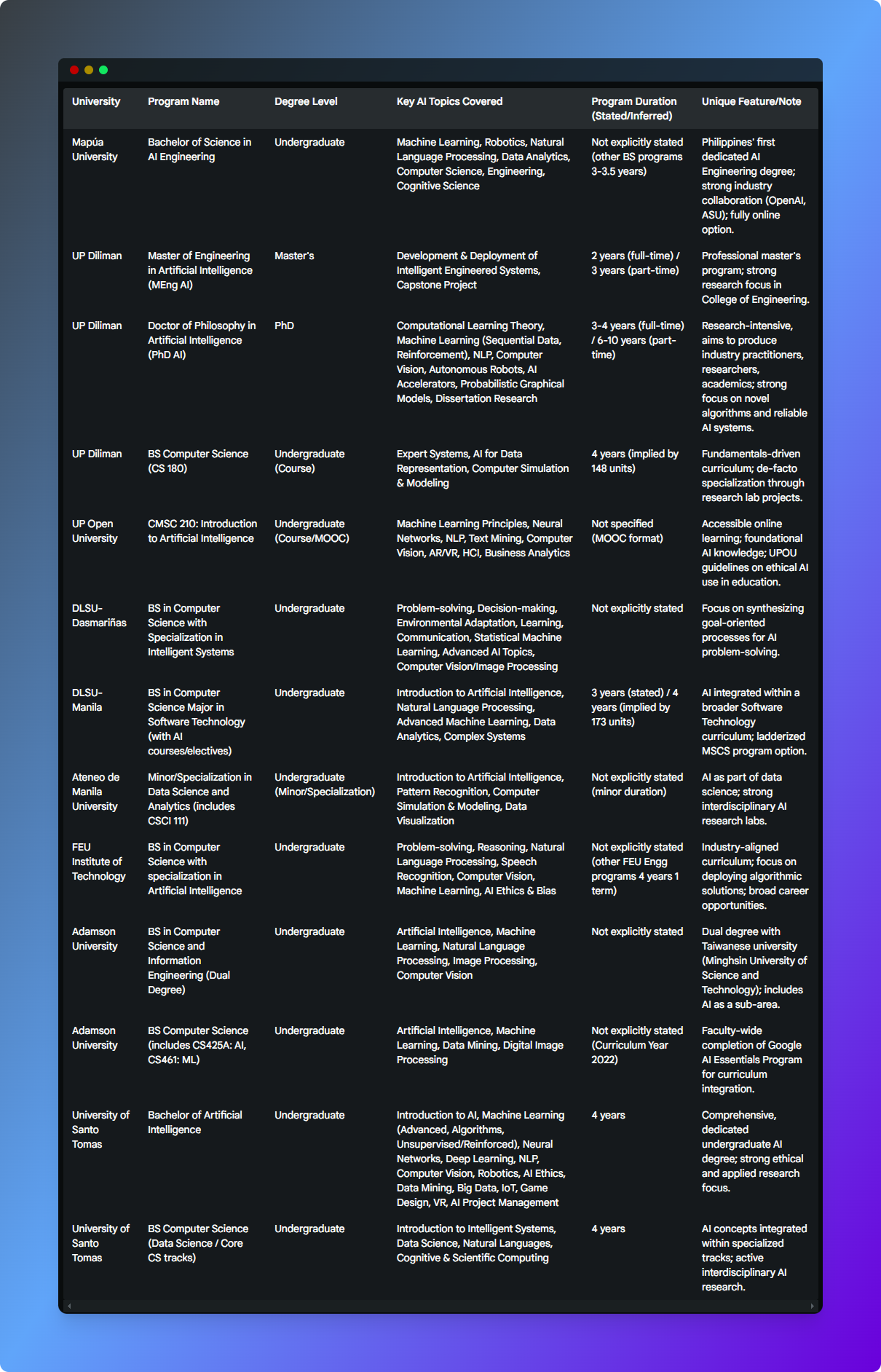
Table 2: Core AI Coursework Across Institutions
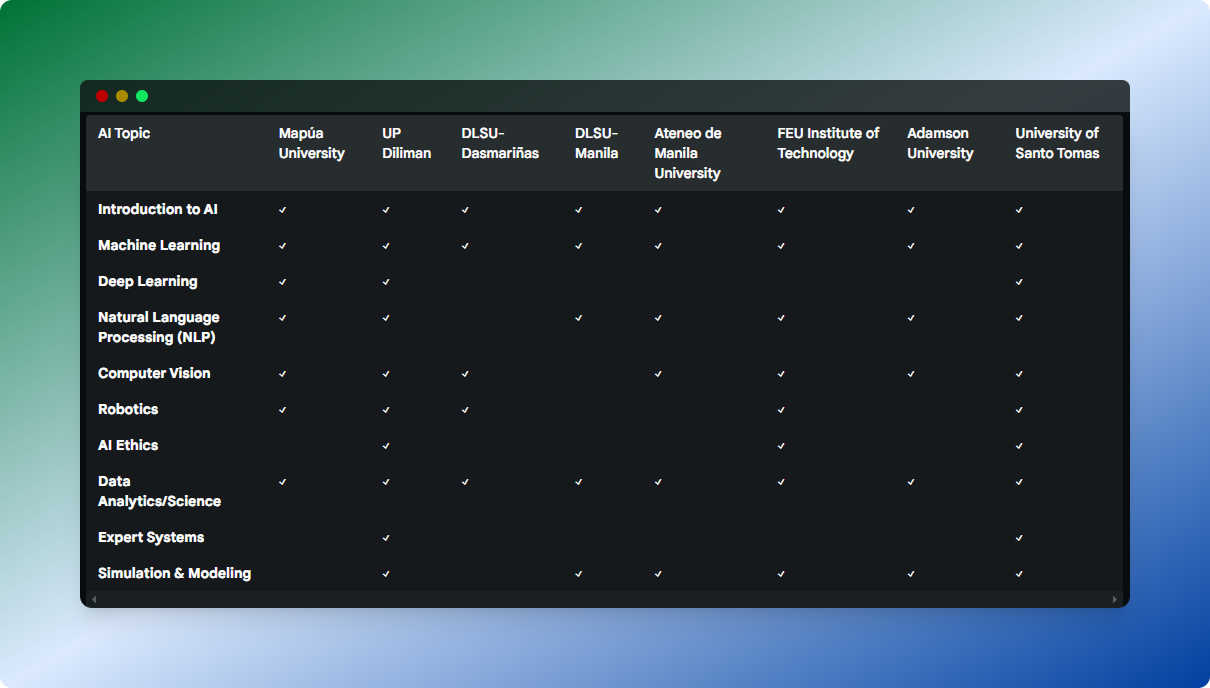
Admission Requirements and Application Insights
Admission into AI programs in Philippine higher education institutions typically involves a set of general and specific criteria designed to ensure that prospective students possess the foundational academic aptitude for these demanding fields.
A. General Admission Requirements
Across various programs and institutions, common requirements for admission generally include a minimum age of 18 years and demonstrated fluency in English.9 Applicants are consistently expected to have “above average grades,” indicating the necessity of a strong academic record prior to application.9
B. Specific Program Requirements
Specific programs impose additional requirements tailored to their unique academic demands:
- UP Diliman MEng AI: Requires a comprehensive set of documents, including a Curriculum Vitae, English Language Certificate, Personal Statement, Highest Academic Transcript (in English), a Photograph, Graduation Certificate (in English), and a Passport Copy.9
- DLSU-Dasmariñas BSCS Intelligent Systems: Freshmen applicants must have satisfactorily completed senior high school, passed the DLSU-D Student Admissions Test (DSAT) with the program’s required cut-off scores, and successfully passed an interview with the Department Chair.23 Transferees and students seeking a second course face additional stipulations, such as a minimum GPA (at least 2.00), no failing grades in any courses, submission of recommendation letters, and for BCS applicants, passing a qualifying exam.23
- Ateneo de Manila University Minor/Specialization in Data Science and Analytics: Students pursuing this minor or specialization need to have achieved an average grade of C in previously taken Math courses and must have successfully completed an introductory programming course (CSCI 21 / MSYS 21: Introduction to Programming I). Furthermore, a minimum C average is required for all courses counting towards the Minor/Specialization.29
The admission requirements collectively indicate that while AI is a cutting-edge field, success in these programs is heavily reliant on strong foundational skills in mathematics, statistics, and computer programming. Prospective students should prioritize excelling in these core subjects during their prior academic pursuits. The inclusion of interviews and specific entrance examinations for some programs suggests an assessment of a candidate’s analytical thinking, problem-solving aptitude, and genuine interest in the field, moving beyond mere academic grades to evaluate overall suitability for the demanding nature of AI studies. This holistic evaluation approach aims to identify candidates who are not only academically prepared but also possess the intrinsic qualities necessary to thrive in an evolving technological landscape.
Career Prospects for AI Graduates
Graduates from AI-related programs in the Philippines are entering a dynamic and rapidly expanding job market, characterized by a consistent and growing demand for professionals with specialized AI expertise.1 The roles available span various industries, reflecting the pervasive integration of AI technologies across economic sectors.
Common career paths for AI graduates include:
- AI Engineer: Responsible for designing and deploying AI models to enhance business decisions.2
- Machine Learning Engineer: Develops systems that enable machines to learn from data, applying predictive models for various applications.2
- Data Scientist: Analyzes complex datasets to derive insights that drive profitability, efficiency, and strategic decision-making.2
- AI Research Scientist: Operates at the forefront of AI innovation, conducting research to solve complex problems using deep learning, statistics, and machine learning methodologies.2
- Robotics Engineer: Focuses on the design, development, and application of robotic systems.33
- Natural Language Processing (NLP) Engineer: Specializes in developing computer programs that process and understand human language.33
- Computer Vision Engineer/Image Data Analyst: Works on improving object detection, classification, and image processing techniques.23
- AI Ethics and Bias Specialist: Addresses the ethical implications, privacy concerns, and potential biases inherent in AI systems.33
- AI Product Manager: Oversees the development and lifecycle of AI-powered products.
- AI Consultant: Provides expert advice to organizations on AI strategy and implementation.
- AI Software Developer: Creates intelligent applications that integrate advanced algorithms and user-friendly design.
- AI in Healthcare Specialist: Applies AI solutions specifically within the medical sector for diagnostics, personalized treatments, and service development.33
- Cybersecurity Analyst specializing in AI: Focuses on leveraging AI for enhanced security measures and threat detection.33
These diverse roles highlight that AI skills are highly transferable and applicable across a multitude of industries, ensuring that graduates are well-equipped to adapt to the evolving demands of the global job market.1 The emphasis placed by universities on developing critical thinking, problem-solving, and data analysis skills further enhances the versatility and employability of AI graduates.
Final Thoughts
The landscape of Artificial Intelligence education in the Philippines is rapidly evolving, reflecting a concerted effort by leading universities to meet the escalating global and local demand for AI professionals. Institutions like Mapúa University, the University of the Philippines Diliman, De La Salle University, Ateneo de Manila University, FEU Institute of Technology, and the University of Santo Tomas are at the forefront of this transformation, each contributing uniquely to the national AI ecosystem.
Mapúa University has pioneered a dedicated Bachelor of Science in AI Engineering, emphasizing a multidisciplinary approach and strong industry collaborations, including with global leaders like OpenAI. This forward-thinking strategy positions Mapúa as a key institution for developing specialized AI talent. UP Diliman, as the national flagship university, focuses on advanced AI studies through its Master of Engineering and Doctor of Philosophy programs, underpinned by extensive research laboratories and a commitment to shaping ethical AI development through its “Principles for Responsible Artificial Intelligence.” This highlights a deep academic and research commitment to advancing the fundamental knowledge and application of AI.
De La Salle University, through its campuses in Dasmariñas and Manila, integrates AI within its Computer Science programs, offering specializations or tracks that build AI expertise upon a strong foundational computing background. This approach aims to produce versatile graduates capable of applying AI in practical scenarios. Ateneo de Manila University emphasizes an interdisciplinary approach, integrating AI concepts primarily through its Data Science and Analytics minor/specialization and fostering extensive applied AI research across various domains, from sound and vision to social computing and extended reality. This focus prepares students to leverage AI for diverse applications and societal impact.
FEU Institute of Technology stands out for its industry-aligned BS in Computer Science with an AI specialization, focusing on equipping students with practical skills to deploy AI solutions that meet industry standards. Their commitment extends to applying AI for community development, demonstrating a balance between technical proficiency and social responsibility. Adamson University’s dual degree program with an international partner and its institution-wide faculty development in AI underscore a strategic investment in human capital, ensuring a continuously updated and relevant AI curriculum for its students. Finally, the University of Santo Tomas offers a comprehensive Bachelor of Artificial Intelligence, providing a broad and deep undergraduate foundation in AI, coupled with active interdisciplinary research that addresses ethical considerations and real-world problems.
Collectively, these institutions are not only producing a skilled AI workforce but are also contributing to the ethical and responsible integration of AI into Philippine society. While variations exist in program structure—from dedicated AI degrees to specializations within broader computer science curricula and integrated courses—a common thread is the recognition of AI’s transformative power and the imperative to educate professionals who can harness this power for national development. Prospective students are encouraged to carefully consider their academic goals, the specific AI topics they wish to pursue, and the unique strengths of each institution, while also directly verifying program details such as duration and specific course offerings. The future of AI in the Philippines is being shaped by these academic endeavors, promising a generation of innovators poised to drive technological advancement and societal progress.
Works cited
- AI for Learning: Finding AI-Integrated Courses | Mapúa - Mapua University, accessed May 27, 2025, https://www.mapua.edu.ph/blog/ai-for-learning-be-future-ready-with-ai-embedded-courses
- Bachelor of Science in AI Engineering | Mapúa - Mapua University, accessed May 27, 2025, https://www.mapua.edu.ph/pages/academics/undergraduate/intramuros-campus/school-of-electrical-electronics-and-computer-engineering/bachelor-of-science-in-artificial-intelligence-engineering
- University of the Philippines Principles for Responsible and Trustworthy Artificial Intelligence, accessed May 27, 2025, https://up.edu.ph/up-principles-for-responsible-artificial-intelligence/
- Critical Thinking with an AI-Powered Curriculum | Mapúa - Mapua University, accessed May 27, 2025, https://www.mapua.edu.ph/blog/enhance-your-learning-experience-and-develop-critical-thinking-skills-with-the-help-of-an-ai-infused-curriculum
- Fully Online Courses and Programs at Mapúa University, accessed May 27, 2025, https://www.mapua.edu.ph/pages/academics/fully-online-programs
- Online Undergraduate Courses and Programs at Mapúa University, accessed May 27, 2025, https://www.mapua.edu.ph/pages/academics/fully-online-programs/undergraduate
- Pursue Bachelor of Science in Electronics Engineering | Mapúa - Mapua University, accessed May 27, 2025, https://www.mapua.edu.ph/pages/academics/undergraduate/intramuros-campus/school-of-electrical-electronics-and-computer-engineering/bachelor-of-science-in-electronics-engineering
- Pursue a Degree in Electrical Engineering Online | Mapúa - Mapua University, accessed May 27, 2025, https://www.mapua.edu.ph/pages/academics/fully-online-programs/undergraduate/programs/online-bachelor-of-science-in-electrical-engineering
- Master’s in Artificial Intelligence at University of the Philippines Diliman | Global Admissions, accessed May 27, 2025, https://www.globaladmissions.com/program/masters-artificial-intelligence/pMUNIQLV0
- Artificial Intelligence – UPD College of Engineering, accessed May 27, 2025, https://coe.upd.edu.ph/masters-of-engineering-in-artificial-intelligence/
- Doctor of Philosophy in Artificial Intelligence - Pages, accessed May 27, 2025, https://pages.upd.edu.ph/artificial-intelligence-program/doctor-philosophy-artificial-intelligence
- PhD in Artificial Intelligence at University of the Philippines Diliman | Global Admissions, accessed May 27, 2025, https://www.globaladmissions.com/program/phd-artificial-intelligence-at-university-philippines-diliman/pPUNIMR50
- Undergraduate program - UP DCS, accessed May 27, 2025, https://dcs.upd.edu.ph/academics/undergraduate-program/
- BSCS – Curriculum - University of the Philippines Tacloban College, accessed May 27, 2025, https://www.uptacloban.edu.ph/bscs-curriculum/
- CMSC 210 - Faculty of Information and Communication Studies, accessed May 27, 2025, https://fics.upou.edu.ph/diploma-in-computer-science/cmsc-210/
- UPOU Releases Guidelines on AI Use for Teaching and Learning, accessed May 27, 2025, https://www.upou.edu.ph/news/upou-releases-guidelines-on-ai-use-for-teaching-and-learning/
- UP Diliman Department of Computer Science - Wikipedia, accessed May 27, 2025, https://en.wikipedia.org/wiki/UP_Diliman_Department_of_Computer_Science
- Program in Management of Artificial Intelligence in the Enterprise | La Salle, accessed May 27, 2025, https://www.salleurl.edu/en/education/program-management-artificial-intelligence-enterprise
- Artificial Intelligence (M.S.) - La Salle University, accessed May 27, 2025, https://www.lasalle.edu/programs/artificial-intelligence-m-s/
- La Salle University CIS, accessed May 27, 2025, https://apply.lasalle.edu/portal/gr_cis
- MSc Artificial Intelligence - Master’s degree • City St George’s, University of London, accessed May 27, 2025, https://www.citystgeorges.ac.uk/prospective-students/courses/postgraduate/artificial-intelligence
- La Salle University expands Computer Science programs with new degrees in AI and cybersecurity, accessed May 27, 2025, https://www.lasalle.edu/news/la-salle-university-expands-computer-science-programs-with-new-degrees-in-ai-and-cybersecurity/
- Bachelor of Science in Computer Science | Program Offerings …, accessed May 27, 2025, https://www.dlsud.edu.ph/programs/cics/bcs.htm
- Bachelor of Science in Computer Science Major in Software …, accessed May 27, 2025, https://www.dlsu.edu.ph/colleges/ccs/undergraduate-degree-programs/cs-st/
- Bachelor of Science in Computer Science Major in Network and Information Security, accessed May 27, 2025, https://www.dlsu.edu.ph/colleges/ccs/undergraduate-degree-programs/cs-nis/
- BS Computer Science major in Computer Systems Engineering - De La Salle University, accessed May 27, 2025, https://www.dlsu.edu.ph/colleges/ccs/undergraduate-degree-programs/cs-cse/
- BS in Computer Science with Specialization in Software Technology | De La Salle University, accessed May 27, 2025, https://coursefinder.ph/courses/2889/bs-in-computer-science-with-specialization-in-software-technology/details
- De La Salle University: Computer Science courses offered - FindUniversity.ph, accessed May 27, 2025, https://www.finduniversity.ph/universities/de-la-salle-university-manila/courses/computer-science/
- Undergraduate Minors | Academics | Information Systems and …, accessed May 27, 2025, https://www.ateneo.edu/sose/discs/academics/minors
- Academic Programs | ECCE - Ateneo de Manila University, accessed May 27, 2025, https://www.ateneo.edu/sose/ecce/academic-programs
- Research | Information Systems and Computer Science | Ateneo de …, accessed May 27, 2025, https://www.ateneo.edu/sose/discs/research
- Faculty and Staff | Ateneo Laboratory for the Learning Sciences, accessed May 27, 2025, https://alls.ateneo.edu/staff-2
- Bachelor of Science in Computer Science - FEU Institute of …, accessed May 27, 2025, https://www.feutech.edu.ph/academics/bscs
- Bachelor of Science in Computer Science with specialization in Artificial Intelligence - FEU Alabang, accessed May 27, 2025, https://feualabang.edu.ph/academics/bscsai
- Bachelor of Science in Computer Science with Specialization in Data Science - FEU Tech, accessed May 27, 2025, https://www.feutech.edu.ph/academics/bscsds
- Far Eastern University Institute of Technology - Wikipedia, accessed May 27, 2025, https://en.wikipedia.org/wiki/Far_Eastern_University_Institute_of_Technology
- BS IT Curriculum 2022 2023 FEU Tech | PDF | Computer Programming - Scribd, accessed May 27, 2025, https://www.scribd.com/document/684155985/BS-IT-Curriculum-2022-2023-FEU-Tech
- AI in Action: Advancing Community Development Through Artificial Intelligence - FEU Diliman, accessed May 27, 2025, https://feudiliman.edu.ph/feudiliman/features/ai-in-action-advancing-community-development-through-artificial-intelligence
- What is Computer Science and Information Engineering? - Adamson University, accessed May 27, 2025, https://www.adamson.edu.ph/v1/?page=dual-degree-cs-ie-home
- Sub-Areas of Computer Science and Information Engineering - Adamson University, accessed May 27, 2025, https://www.adamson.edu.ph/v1/?page=dual-degree-cs-ie-subareas
- Curriculum Year 2022 - Adamson University, accessed May 27, 2025, https://www.adamson.edu.ph/v1/?page=curriculum&cid=%20%20%20%20%20n&curryear=2022
- bs computer science - Adamson University, accessed May 27, 2025, https://www.adamson.edu.ph/v1/?page=pos-course&course=n
- Charting a Digital Future: CCIT becomes first PH University to complete IBPAP-Google AI Essentials program, accessed May 27, 2025, https://www.adamson.edu.ph/v1/?page=view-news&newsid=3410
- بكالوريوس الذكاء الإصطناعي - جامعة العلوم والتكنولوجيا, accessed May 27, 2025, https://ust.edu/en/faculty-of-engineering-and-computing/bachelor-of-artificial-intelligence/
- Department of Computer Science - University of Santo Tomas, accessed May 27, 2025, https://www.ust.edu.ph/information-and-computing-sciences/department-of-computer-science/
- Bachelor of Science in Computer Science - University of Santo Tomas, accessed May 27, 2025, https://www.ust.edu.ph/academics/programs/bachelor-of-science-in-computer-science/
- UST Research Fortnight: Thomasians integrate AI, tech across disciplines | The Varsitarian, accessed May 27, 2025, https://varsitarian.net/sci-tech/20250227/ust-research-fortnight-thomasians-integrate-ai-tech-across-disciplines-posters
- AI responsibility, ethics take center stage at 2025 UST Research Fortnight | The Varsitarian, accessed May 27, 2025, https://varsitarian.net/sci-tech/20250219/ai-responsibility-ethics-take-center-stage-at-2025-ust-research-fortnight
- UST Academic Partnerships, accessed May 27, 2025, https://www.ust.com/content/dam/ust/documents/UST-Academic-Partnership_Rebranded_2.pdf
- Graduate Degree Programs - UPD College of Engineering - UP Diliman, accessed May 27, 2025, https://coe.upd.edu.ph/academics-overview/graduate-degree-programs/
- Curriculum Year 2023 - Adamson University, accessed May 27, 2025, https://www.adamson.edu.ph/v1/?page=curriculum&cid=%20%20%20%2076&curryear=2023
- Bachelor of Science in Data Science | Mapúa - Mapua University, accessed May 27, 2025, https://www.mapua.edu.ph/pages/academics/undergraduate/makati-campus/school-of-information-technology/bachelor-of-science-in-data-science

